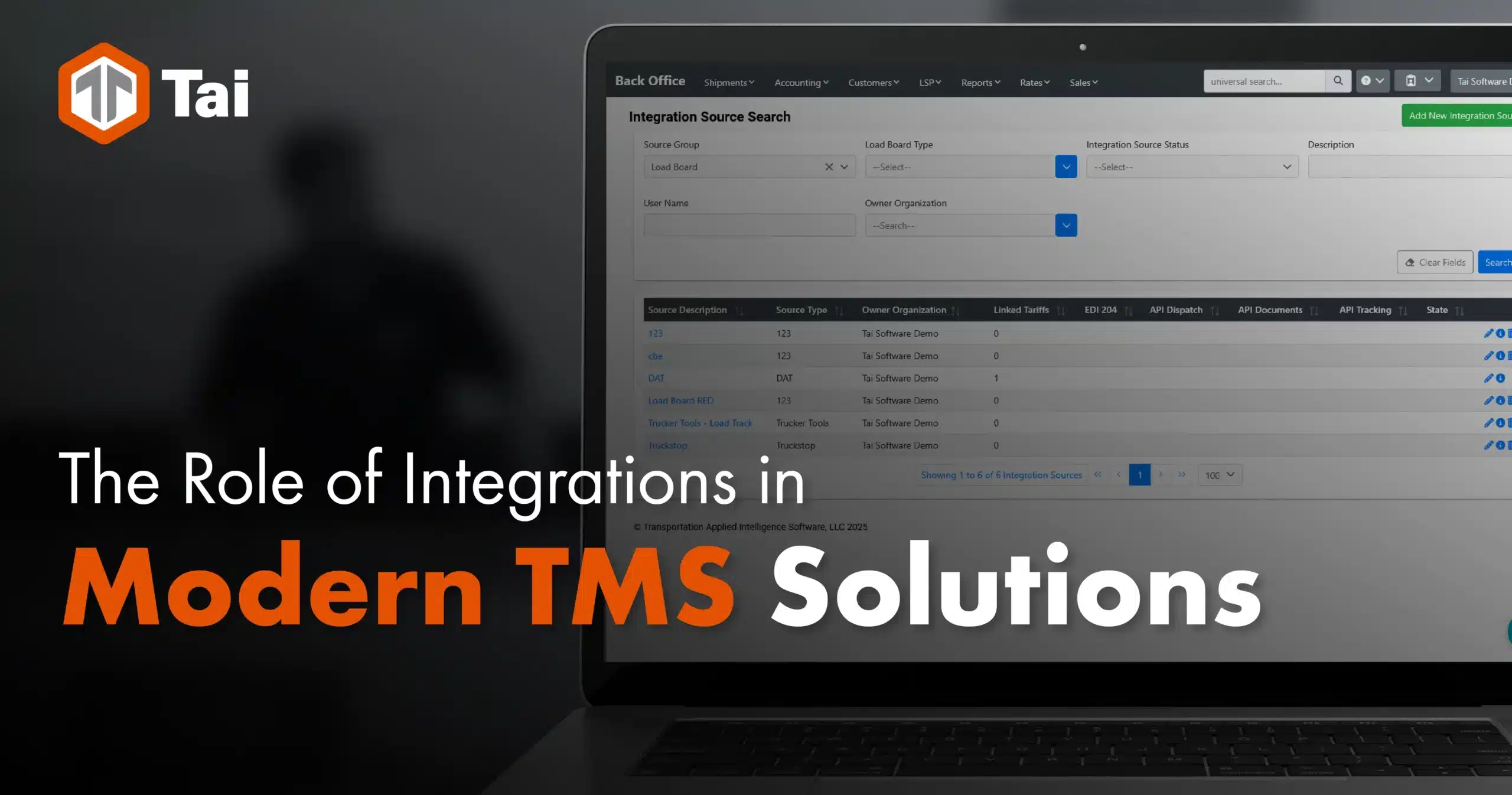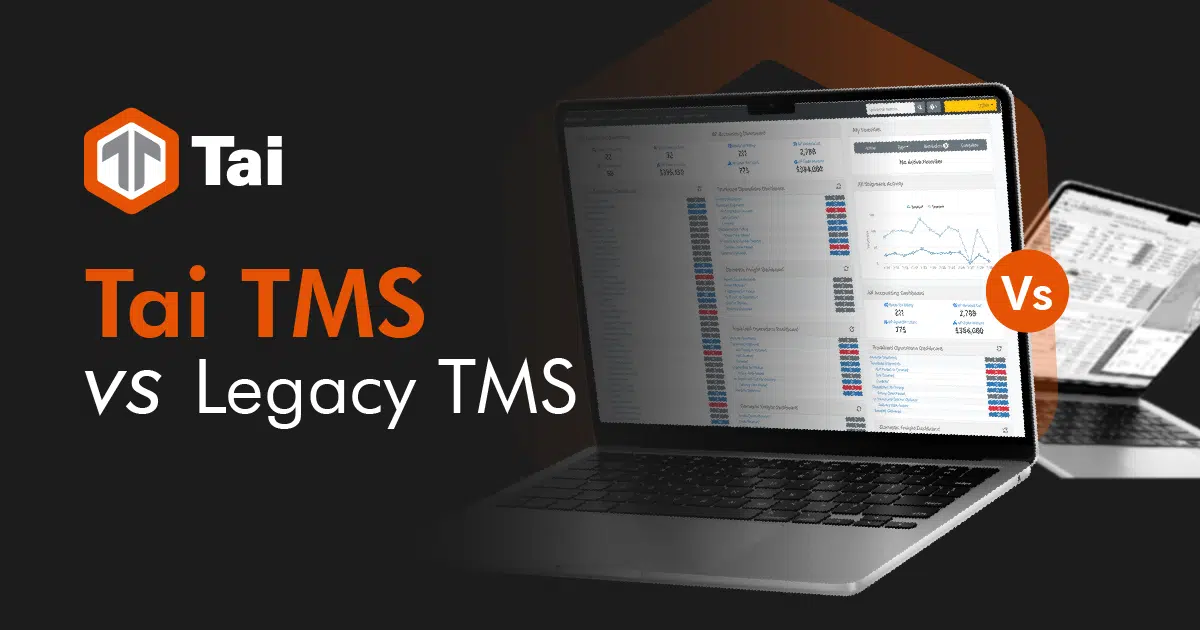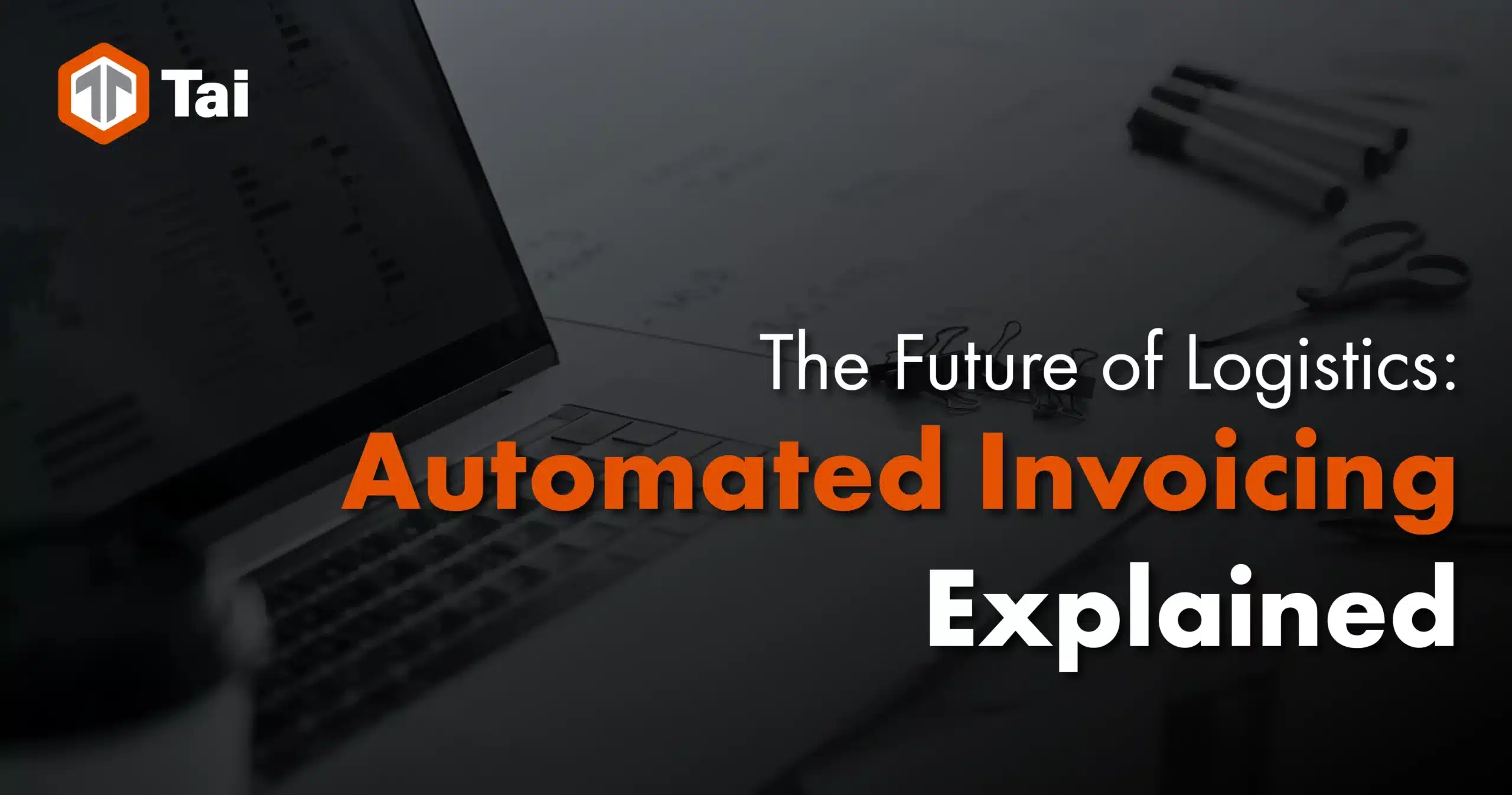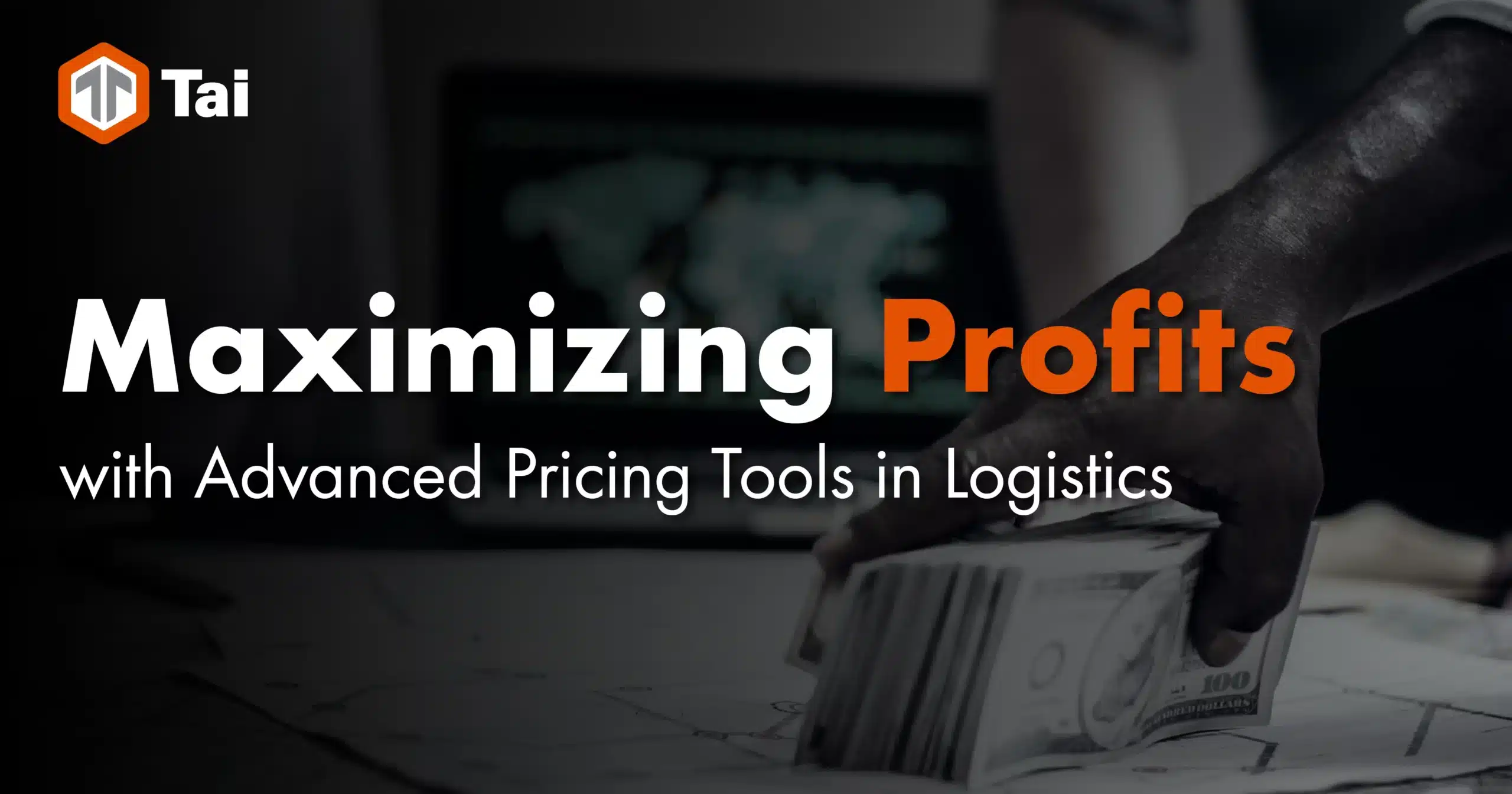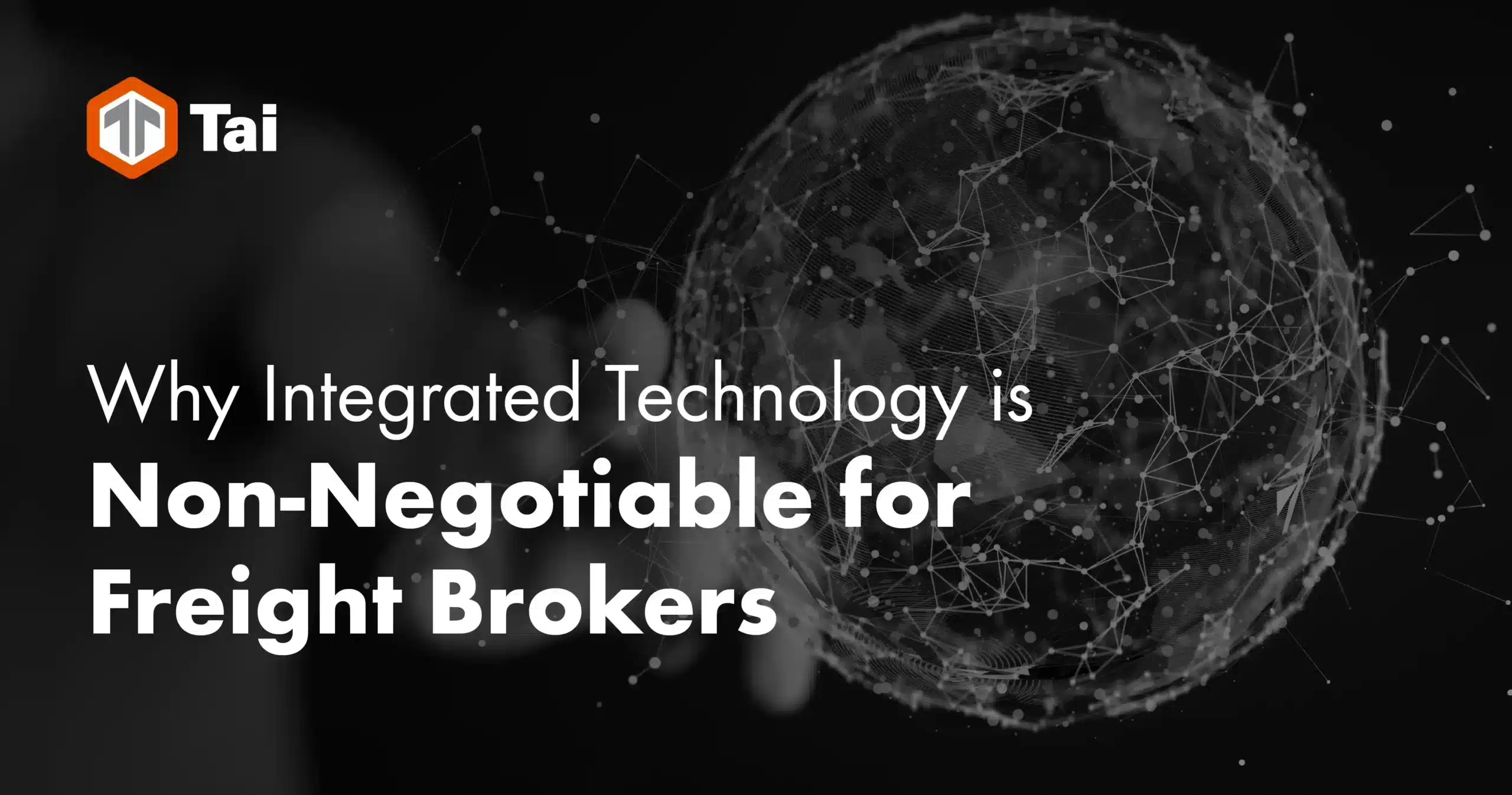The fast-paced logistics landscape today sees freight brokers continually seeking methods to enhance operational efficiency and drive business growth. A pivotal role in achieving these goals is played by Modern Transportation Management Systems (TMS), primarily because of their capability to integrate seamlessly with various tools and platforms. Let’s explore the critical integrations within modern TMS solutions that empower brokers and enterprises to streamline processes, enhance visibility, and improve decision-making.
Why Integrations Matter
Integrations are the connective tissue that bring together disparate functionalities and data sources, creating a cohesive ecosystem within the TMS. By integrating with various platforms and tools, a TMS can deliver a unified experience that enhances operational efficiency.
- Centralized Data: Integrations allow for the centralization of data across different functions, enabling accurate and timely decision-making.
- Automation: By automating repetitive tasks, TMS integrations reduce manual efforts and errors, freeing up time for strategic activities.
- Scalability: As businesses grow, integrations provide the flexibility needed to expand operations without significant overhauls.
Key TMS Integrations for Freight Brokers
1. Rate Intelligence
Capitalize on dynamic pricing environments by leveraging Rate Intelligence integrations. These integrations provide access to real-time data, enabling brokers to adjust pricing strategies swiftly:
- Competitive Benchmarking: Compare rates with those in the market to ensure competitiveness.
- Market Trends Analysis: Utilize historical and current data to predict rate fluctuations.
- Optimized Pricing Models: Adopt dynamic pricing models that reflect market conditions.
2. Loadboards
Integrating loadboards within your TMS connects you directly to a network of freight opportunities. This integration enhances load coverage and speed:
- Expanded Network: Access a broader range of carriers and loads efficiently.
- Real-Time Availability: Quickly identify and secure available loads.
- Streamlined Communication: Facilitate direct communication with carriers regarding available loads.
3. DFM/Capacity
Digital Freight Matching (DFM) integrations enable brokers to match available capacity with loads efficiently, reducing empty miles and ensuring optimal resource use:
- Capacity Forecasting: Analyze capacity trends to align with market supply.
- Instant Matches: Quickly match loads with available trucks to enhance fleet utilization.
- Reduced Emissions: Minimize deadhead miles to contribute to sustainability goals.
4. Shipment Visibility
Shipment visibility integrations ensure that brokers maintain real-time tracking and management of shipments:
- Enhanced Monitoring: Utilize GPS and other tracking technologies for live updates.
- Proactive Issue Resolution: Identify and address transit issues swiftly.
- Customer Satisfaction: Offer clients real-time visibility into their shipments.
5. Carrier Onboarding
An efficient carrier onboarding process is vital for operational success. Integrations streamline the onboarding process through:
- Document Collection: Automate the collection and validation of essential carrier documents.
- Compliance Checks: Ensure carrier compliance with industry standards.
- Integration with CRM: Sync onboarding data with CRM systems for better relationship management.
Financial Management Integrations
1. Accounting
Accounting integrations provide a seamless connection between logistics operations and financial management:
- Automated Billing: Streamline invoicing and payment processes.
- Financial Reporting: Gain insights into financial performance with real-time analytics.
- Compliance and Auditing: Ensure transactions meet regulatory standards.
2. Factoring & Payments
Factoring and payment processing integrations offer brokers financial flexibility by managing cash flow efficiently:
- Quick Funding: Access immediate funds to manage cash flow without waiting for client payments.
- Payment Security: Ensure secure and efficient processing of transactions.
- Reduced Paperwork: Automate payment processing to reduce manual interventions.
3. Claims & Insurance
Manage risk more effectively with claims and insurance integrations:
- Claims Automation: Simplify the claims process through automated filing and tracking.
- Insurance Verification: Ensure proper insurance coverage for each shipment.
- Risk Assessment: Analyze potential risks and liabilities with integrated data.
CRM and Communication Integrations
Email and CRM
Integrating CRM systems and email solutions within a TMS enhances customer relationship management and communication:
- Customer Insights: Capture and analyze customer interactions to improve service.
- Automated Follow-Ups: Schedule and automate communication with clients.
- Seamless Data Sync: Ensure all client interactions and data are accurately captured and stored.
Email Integration: AI-Powered Inbox Management
AI-powered inbox management enabled by email integration streamlines communication processes:
- Automated Sorting: Let AI read and extract relevant details from emails to automate data entry.
- Enhanced Organization: Standardize and organize email data within the TMS.
- Time Savings: Reduce time spent on manual inbox management tasks.
End-To-End Operational Visibility
AI-driven integrations within CRM systems provide comprehensive insights into operations:
- Data Aggregation: Leverage aggregated data for strategic decision-making.
- Customer Service Enhancement: Use insights to tailor services and improve customer satisfaction.
Rapid Quoting & Tracking
AI in TMS can compress the quoting process significantly:
- Efficiency: Transform quotes from hours-long tasks into minutes.
- Quick Responses: Ensure timely and accurate communication with clients.
- Comprehensive Tracking: Consolidate data for rapid, automated shipment tracking.
Conclusion
In the realm of freight brokerage, the right TMS integrations are transformative. They not only automate and streamline operations but also boost overall efficiency and decision-making capabilities. Freight brokers seeking growth and operational excellence should look for TMS solutions that offer these comprehensive integrations.
When considering a TMS provider, look no further than Tai Software. We offer a suite of integrated solutions designed to revolutionize your freight brokerage operations, providing you with the tools needed to manage, optimize, and elevate your FTL and LTL services seamlessly.

